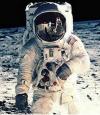Site Search
Copyright © 2024 Highbrow Magazine
by Ben Friedman
In curating this lineup, I selected four films that all share one specific point of commonality: flawed people trying to make it through their day despite the odds being stacked against them. Some stories are more successful than others, yet these four films demonstrate a unique perspective in their search to make sense of our current American lifestyles.
Read more...by Ulises Duenas
Godfrey was returning to the area at the time to find inspiration for a book about the lives of the girls who live in a group home since they have nowhere else to go. There, she meets Josephine Bell, the de facto leader of the girls. Godfrey quickly learns of their harsh lifestyle and the fact that the city sees them as disposable.
Read more...
























































































































































































































































































































Copyright © 2024 Highbrow Magazine




